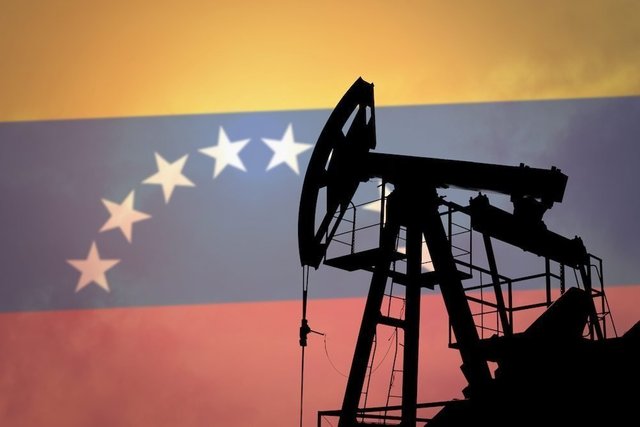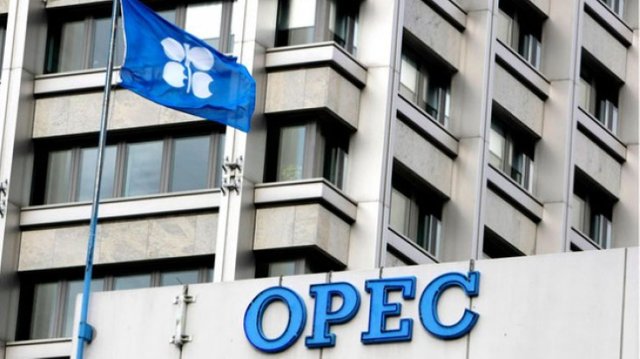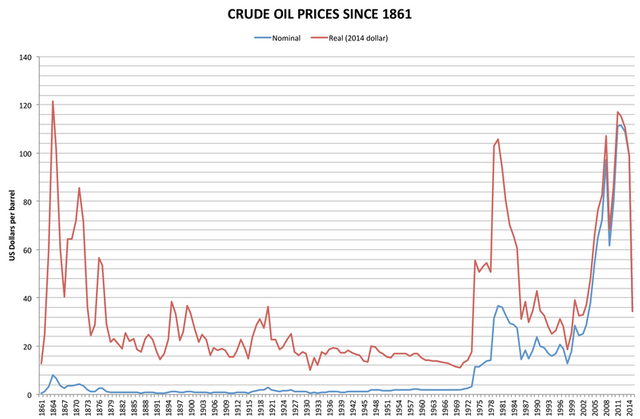Norway & Venezuela: Two different models based on the same resource

When the oil industry was born, locating deposits was much easy and simpler than it is now, since only those deposits that were discovered by chance were exploited, that is, they were mainly superficial deposits, however, thanks to the increase in importance that this resource was charging due mainly to industrialization and new ways of using this mineral, it ended up generating an intensive development in the methods and ways of performing the exploration and extraction of new deposits, to the point where the process transformed into a true science.
We know that for humanity and for industrialized society, oil means something of great importance, because we probably could not find another resource that better symbolizes what society has become. The oil market is very competitive, yes, it is also a very specialized market and has high levels of technical training, it is a really competitive market and hard like no other, which has many competent people working on it, and its price it is moderately marked by supply and demand, but it is also true that usually, the great wealth obtained by this non-renewable natural resource goes to the hands of a group of people who have received privileges and who monopolize all the wealth, or at the hands of corrupt politicians who have broken up a whole society while continuously extracting resources.
The goal that I pursue with this publication, is to make a contrast between the positive and the negative that it can be for a society to have such an important resource for the global economy. Once time John D. Rockefeller said: "The best business in the world is a well-run oil company. The second best business in the world is a badly run oil company." Although I am not exactly a Rockefeller enthusiast, I will start from this premise to make a comparison between Norway and Venezuela, and the different ways in which they have used this non-renewable natural resource.
VENEZUELAN CASE

Although exploitation began to take place formally in the colonial era, oil activity in Venezuela dates back to Pre-Columbian era when oil was used only to caulk and waterproof the boats. The oil potential of Venezuela was known for several centuries, but it was not until the early twentieth century that it began to be exploited in an industrialized way, due to the "Code of Mines for the Nation" established in 1904, which delegated to the President the power to grant concessions to explore and exploit oil without the need to consult the Congress beforehand. The latter is of vital importance, since in those years, in Venezuela, nobody had the technical knowledge or the necessary capital to develop the exploitation of these resources, for this reason foreign participation was indispensable. Nevertheless, this is where Venezuela's first error regarding its administration originated, since the concessions, which were handed over arbitrarily by the President, were delivered to his closest friends, and then it was these friends who were in charge of renegotiating the concessions with foreign companies. This evidently lends itself to corruption, and to the formation of a class of people privileged by the State.
After the first twenty years of oil exploitation by foreign concessionaires, Venezuela became the largest oil exporter in the world, and the second largest oil producer, only behind the United States. However, all this industrial development in the oil sector was administered with a lack of cunning, making the increase in oil production to the detriment of the rest of the country's economic sectors, such as the agricultural sector, which limited the country's ability to develop and maintain other industries.
Forty years ago two Norwegian economists identified the oil rentier process and baptized it as the Venezuela effect: "As long as you receive an income, that income determines your internal prices. Domestic prices, fed by that income, don't allow you to develop production".
Venezuela made its entire economy dependent on oil revenues, it did not diversify its production and the only thing it can offer the international market at a competitive price is black gold. So Venezuela's economy grows only if oil revenues increase and it goes into recession if oil revenues decrease.

In 1960, as a direct response to low oil prices, at the initiative of the Government of Venezuela, OPEC was created, with the objective of controlling and stabilizing the price of the oil barrel, something that they could momentarily achieve with relative success, through the implementation of export quotas.
The following chart shows that after the creation of OPEC, oil prices remained higher.

In short, the free market competition disappeared from this sector, being replaced by an excessive control, Venezuela began to speculate with the price of oil instead of trying to develop other sectors of its economy, and all this process only managed to convert the country more and more dependent of the oil revenues.
In the seventies, Venezuela began a progressive process of nationalization, decreeing the "Oil Reversal Law", which established that all goods, equipment and facilities belonging to the concessionaires would revert to the nation, without compensation, at the time they expire of the concessions. Thus, in 1976, Venezuela nationalized the oil industry and created PDVSA, the Venezuelan state oil company, and all the foreign companies that once carried out their activities in the country were replaced by Venezuelan subsidiaries of PDVSA, which began to control all the activity of hydrocarbon exploitation in Venezuela. Subsequently, in 1980, PDVSA acquired Citgo.
Venezuela has among its largest international assets the company Citgo, located in the United States of America, of which it owns 100%, and through which it owns eight refineries in the United States, located in Corpus Christi, Houston, Illinois, New Jersey, Sweeny, Louisiana, Savannah and Georgia; it also owns the Ruhr Oil in Germany, of which it owns 50% of the shares, and the company Nynäs Petroleum in Sweden, in which it has equal shares with the oil company of Finland, Neste Oil Corporation. In May 2010, PDVSA also acquired 49% of the only refinery in the Dominican Republic, known as Refidomsa.
With the nationalization of the oil industry, the activities of oil exploration and production were centralized, making all the oil drilling guided by the board of directors of a single company, the Venezuelan state oil company PDVSA. In addition, because the international expansion was carried out in an unbalanced way, investing mostly in the North American market, 65% of the oil export went to the United States, making Venezuela dependent on the pace of the economy of this country.
In the 90s the OPEC export policy begins to fail because the members don't respect the quotas with which they had committed, which generates a collapse in the price of oil. It is at this moment when Venezuela tries through a policy called "Oil Opening" to get foreign investment, giving companies like ExxonMobil, Royal Dutch Shell, ConocoPhillips, Chevron, Total, among others, the opportunity to extract resources from the nation, as long as they allow the participation of PDVSA as a minority shareholder. However, after the arrival of Hugo Chavez to the presidency of the Republic of Venezuela, the policy of the "Oil Opening" is ended and an attempt is made to revive the policy of market control established by OPEC, which is very good economic results for the exporting countries, because the oil barrel reaches historical maximums.
Although Venezuela has a lot of potential for the expansion of productive capacity, they have not proven to be able to develop new oil deposits since the nationalization of heavy crude oil projects in the Orinoco Petroleum Belt.
Although PDVSA was able to stay relatively out of state control for a while, as the years progressed, the intervention of the State in the affairs of the company's administration ended up making it unproductive, causing the company to increase its staff of 30,000 to 150,000, that is, five times the number of workers, contradictory, production decreased, and because oil revenues were used directly to intervene in the economy and mainly to subsidize in different ways both the business sectors like the citizens, the dependence on oil increased, making the course of the whole industry be compromised by political factors that have nothing to do with the administration of a business.
Currently, the Venezuelan oil industry is unable to increase its production, with incredibly high operating costs, with lack of maintenance facilities, completely in debt, and with a whole nation that depends on it. In short, Murphy's Law was applied perfectly. In this way, the mismanagement oil, turned it into a disgrace.
NORWEGIAN CASE

Unlike the Venezuelan case, where the existence of oil was known for centuries, in the case of Norway the discovery of oil does not happen until the late 1960s. Since then, Norway seems to have learned from all the errors committed by the rest of oil exporting countries, and consequently, has implemented a diametrically opposite policy.
While in Venezuela there are too many funds to spend all oil revenues, in Norway they designed a Oil Fund (Government Pension Fund of Norway), with the goal of investing oil revenues, and thus make the most of it, as well as allowing them to secure the benefits for their future generations.
The resources of this Fund are invested abroad and the profits are used as a complement to the National Budget, without making an excessive injection of capital from oil, avoiding inflation and the dependence on exports that characterizes the Venezuelan economy, since the Nordic country uses oil revenues as a way to stabilize the national currency and keep inflation relatively low, which is possible because there is a strict control that prevents the government from spending arbitrarily the oil rent.
To avoid a negative impact, Norway does not invest in companies that operate within its territory, and it keeps this position for companies that carry out activities abroad, making an analysis later on the impact that the injection of these gains can generate in the National Budget.
By not financing the fiscal deficit with money issues by the Central Bank, Norwegian government spending does not have a negative effect on inflation, so that the whole mechanism serves to harmonize fiscal and monetary policy, ensuring interest rates that stimulate investment and keeping inflation low, that is to say, the oil revenues are used in a totally opposite way to Venezuela's, having in turn the totally opposite result. Similarly, the mechanism used by Norway avoids the overvaluation of the national currency, which would have a negative impact on the competitiveness of exports and reduce productive efforts, as it happened in Venezuela in the 1950s, when the national currency appreciated so much, that the country became an importer of practically all kinds of goods and services, thus preventing the development of the domestic industry.
Unlike the Venezuelan case, where foreign investments were directed to increase dependence on oil, in Norway it is invested in different types of companies that produce different goods and services, without also possessing, for security and diversification reasons, more than 5% of the shares of any of these companies.
As we have seen, the roads taken by both nations could not be more different, but these differences are not only maintained in the oil aspect, but they are transferred to the whole conception of the economy. While in Venezuela they have never been able to deal with inflation and deflation, in Norway they have done very well, while Venezuela is betting on more and more State interventionism, in Norway they are betting on greater economic freedom, while in Venezuela social policies are oriented to subsidize people, in Norway social policies are aimed at complementing individuals. The results of both models are easily noticeable, you just have to take a look to notice the big difference in this two countries.
So... was Rockefeller right?
Well, I think there was some reason in that sentence, the question that I pose is, for whom? Who is a good business for? A well-run oil company is a business for the whole society, since good management is not only making a lot of money, but winning in every way, the industry receives the resource it needs, environmental security must be a priority and money is used to achieve the greatest social benefit in a sustainable way, on the other hand, a badly run oil company will be a big business for those who are in privileged positions, for the corrupt and for the oppressive governments that obtain financing through this mechanism.

Curated for #informationwar (by @truthforce)
Relevance: Exposing Corruption
Our Purpose
Nunca deja sorprender la historia de Venezuela, es increíble el potencial tan grande que fue desperdiciado, espero puedan sacarle provecho una vez caiga ese gobierno corrupto, aunque leí en algunos artículos que los candidatos para las próximas elecciones son los mismos delincuentes... el anterior presidente a Chavez que tal fue? No me han hablado muy bien de el, ¿Que presidente de Venezuela ha sido en su historia símbolo de progreso y orgullo ?
Sí, casi todo ha sido desperdiciado, si me preguntas personalmente, creo que Eleazar Lopez Contreras y Isaías Medina Angarita hicieron un buen trabajo desde 1935 hasta 1945, pero el único presidente que realmente ha destacado por sobre el resto en cuanto al nivel de calidad de vida y al desarrollo social, fue el General Marcos Pérez Jiménez en los años 50, luego de que terminó su gobierno, Venezuela ha sido un desastre.
Leeré sobre ellos, ¿puedes contarme un poco sobre las próximas elecciones?¿hay esperanza? Me contaron algo sobre un pastor que se lanzo o lanzara como candidato a la presidencia, ¿que paso con la oposición? Las marchas que organizaban tan grandes eran impresionantes, a estas alturas, creí que tendrían un candidato fuerte de la oposición el cual haría temblar a esos ladrones
Sí, bueno, la oposición esta dividida y no participará en las elecciones por falta de garantías. En vista de eso, un pastor ha decidido ocupar el espacio dejado por la oposición. Realmente no se sabe que pueda pasar.
Excellent writing as always. Here is a complimentary video with some info:
Thank you. Yes, I saw it, this channel is the English-language version of Visualpolitik. Haha
even ISIS makes money in the oil business.
Good, very interesting.
Interesting comparison.